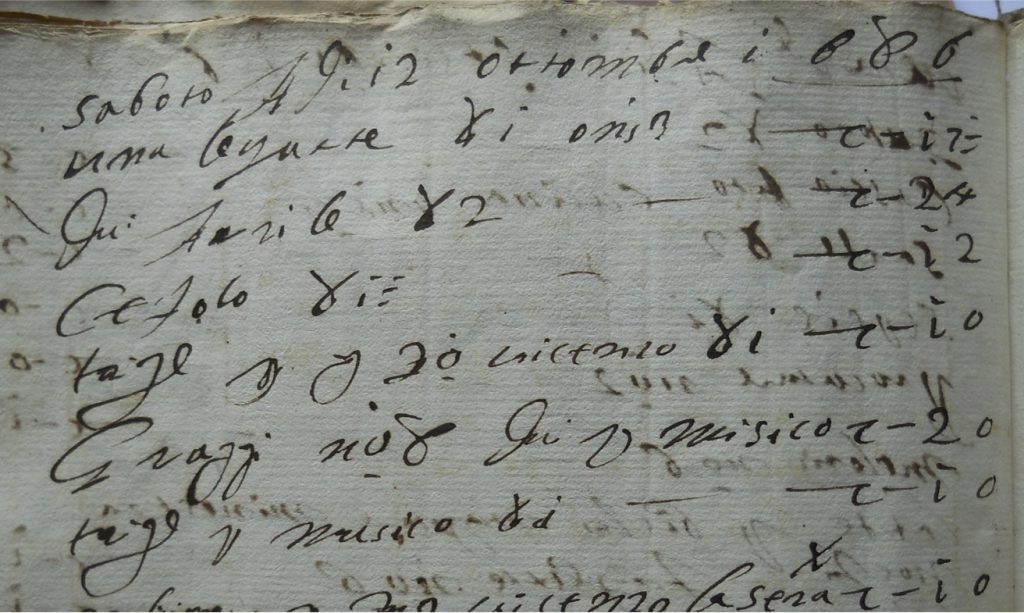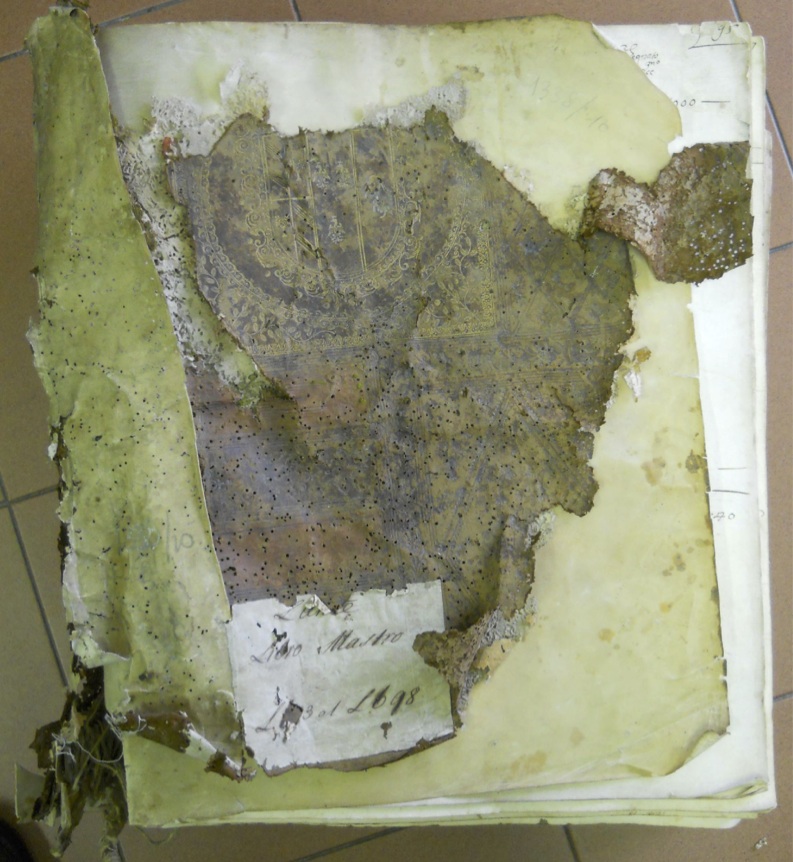PerformArt Research Project
Valeria de Lucca, Lecturer in Music, reports on an exciting new project she is involved in.
A three-day conference at the École Française de Rome from 5 to 7 December 2016 kick-started a new project funded by the European Research Council: PERFORMART: “Practicing, Producing, and Protecting the Arts in Rome (1644-1740). Towards a Shared History of Performing Arts in Roman Family Archives.” Dr Anne Madeleine Goulet, a researcher at the Centre d’études supérieures de la Renaissance of Tours and a scholar of Roman aristocratic culture, is the Principal investigator whose visionary project was awarded the maximum level of funding under the ERC Horizon 2020 Consolidator scheme, two million euros, to lead a group of over 20 researchers and archivists in what promises to be an enterprise that could revolutionise the fields of seventeenth-century studies of the performing arts and digital humanities.

During the early modern period, Rome’s socio-political structure was quite unique. Unlike any other court or state of the time, religious and civic powers were in the hands of one man, the pope, who was also the head of Christianity. The fact that the pope was elected – and that usually the choice fell on a member of the Italian aristocracy – meant that unlike other Italian courts, where power could be detained by one family for centuries, the ruling family changed frequently, guaranteeing an unusual degree of social mobility. Surrounding the pope and the Church hierarchy were a number of aristocratic families, embassies and religious institutions that shared the urban landscape, making Rome one of the most cosmopolitan cities of this time. Competition among these aristocratic families to acquire visibility, affirm their superiority over the others and guarantee a certain degree of autonomy was fierce and patronage of music and the arts was one of the most powerful weapons to display social status, wealth and intellectual superiority.

The fragmented nature of the Roman society during the seventeenth and early eighteenth centuries means that a systematic study of the city’s cultural life is a quite challenging scholarly enterprise. Most studies have so far concentrated on the patronage of arts and music of popes and their families. Only recently scholars have begun to turn their attention to aristocratic families, concentrating on individual cases and limited periods of time. My studies on the patronage of music and theatre of one of these families, the Colonna, are among the first attempts to make sense of a situation that is quite difficult to grasp as a whole: we are still missing a full chronology of musical and theatrical events that took place in Rome during the early modern period, for example, and tracking the movements and activities of singers, musicians, dancers, poets and composers active in Rome is still a cumbersome and enterprise. What scholars were missing was a platform that would allow for a cross-referenced study of the Roman archives of aristocratic families in order to reconstruct a more complex and complete picture of the city’s cultural activities, especially for what concerns the somehow ephemeral performing arts. How freely could artists and artisans circulate among these families’ patrons? To what extent did mobility make the patronage of each family “individual”? What were the ways in which each family made their patronage unique? How did forms of collective patronage work at this time ?
 PERFORMART will allow scholars to answer these and many other pressing questions. Through the use of a database, brilliantly realized by Foucauld Pérotin, the international team of scholars and archivists will be able to input a massive quantity of information from the individual archives: records from account books, correspondence, inventories, but also opera libretti and contemporary chronicles. Once the initial work of data input is underway, the database will enable scholars to perform incredibly nuanced searches and to gather very sophisticated cross-referenced results that will reveal a wealth of information, connecting people, places, genres, works and allowing for endless possible readings of this data. The database will become available to the entire community of the world wide web starting in 2021. Seminars, workshops, concerts and several publications will allow scholars to discuss the results of their research and their individual projects as results of the elaboration and contextualization of the information gathered from the database.
PERFORMART will allow scholars to answer these and many other pressing questions. Through the use of a database, brilliantly realized by Foucauld Pérotin, the international team of scholars and archivists will be able to input a massive quantity of information from the individual archives: records from account books, correspondence, inventories, but also opera libretti and contemporary chronicles. Once the initial work of data input is underway, the database will enable scholars to perform incredibly nuanced searches and to gather very sophisticated cross-referenced results that will reveal a wealth of information, connecting people, places, genres, works and allowing for endless possible readings of this data. The database will become available to the entire community of the world wide web starting in 2021. Seminars, workshops, concerts and several publications will allow scholars to discuss the results of their research and their individual projects as results of the elaboration and contextualization of the information gathered from the database.
I am extremely excited to be able to collaborate with Dr Goulet and the rest of the team for the next five years. My project in PERFORMART considers the ways in which the patronage of music of the Colonna family fostered the circulation not only of singers but also of scores and librettos between the mid-seventeenth and early eighteenth centuries, creating new networks for the exchange of operatic models in the Italian peninsula and Europe. Based on the rich documentation on musical patronage held in the Colonna archive, and particularly correspondence, I will examine the activities of several members of the family in support of the most renowned singers of their time over a century-long trajectory. This was a crucial time not only for the articulation of the dichotomy between court and public theatres, but also for the development of the institution of patronage itself. In this context, my study reveals singers as some of the main agents for the circulation of operatic repertoire and models, while also considering the role of their increasing professionalization on the operatic marketplace. Ultimately, my project will reframe the importance that Rome had for early modern operatic production, which has too often been obscured by the more visible activities of Venice and later Naples.

